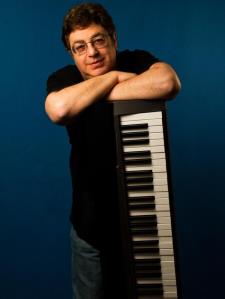
As a composer, should I be composing music for an instrument I don't play?
2 Answers By Expert Tutors

Justin T. answered • 05/12/20
Graduate Music Composition Student and Jazz Saxophonist
Hello! I think that consulting with someone who plays the instrument is sufficient - you basically want to understand what is possible, impossible, and idiomatic. If you don't have someone to talk to who specializes in that instrument, spending some time digging into some of its solo repertoire should give you a better understanding.

Sharon R. answered • 01/30/20
Bachelors in Contemporary Writing & Production
Obviously it's much easier to compose for an instrument you play. It's absolutely not necessary to learn EVERY instrument. I would say it's important for you to research the instruments you're writing for. Know the ranges of every instrument, know if theres awkward positions/transitions in an instrument, and be aware that some instruments more than others have actual physical restraints.
It's common to have a notebook handy with all of this information compiled and it's in no way wrong to refer to this notebook at any given time. Ranges, Fingerings etc. for various instruments is a lot of information that unless you use it all on a usual basis it get's lost in our brains quickly.
Specifically for orchestral as well as big band instruments there tend to be more restrictions for example, a clarinet has a breaking point in the middle of its range and writing a line that cuts straight through that breaking point will be quite hard for them to execute at quick speeds.
Same goes for double stops on string instruments - some are physically impossible and some are just not possible at certain speeds. Make note of whats easy, a bit harder and impossible for each instrument.
Additionally try and learn and make note of the character of each instrument. The tone of the instrument, the various styles they can adapt to, the techniques that are available to you, what pairings work and how their tone changes from range to range. For instance it's impossible to write VERY high on trumpet and violins without it getting very loud very quickly. Your arrangement will come to life a lot easier if you abide by the instruments restrictions.
Lastly, if you know the players it automatically eases your writing process for various reasons. You know their abilities and strengths, you know their sound and most importantly they're accessible to you and definitely don't hesitate to ask them.
Also for rhythm section instruments - after playing for a while they tend to get used to reading in one way - so if you can reach out to them and find out how they prefer to read that might ease your process as well - especially drummers, since drum notation is highly debated about.
If you're writing for players you're not familiar with definitely stay within range and don't try to get too experimental with how you use the instruments since you don't know whether the players will be capable of handling that kind of music - unless you're recording for the Abbey Roads Orchestra - they'll eat anything up!
Still looking for help? Get the right answer, fast.
Get a free answer to a quick problem.
Most questions answered within 4 hours.
OR
Choose an expert and meet online. No packages or subscriptions, pay only for the time you need.





Buzz A.
03/23/20